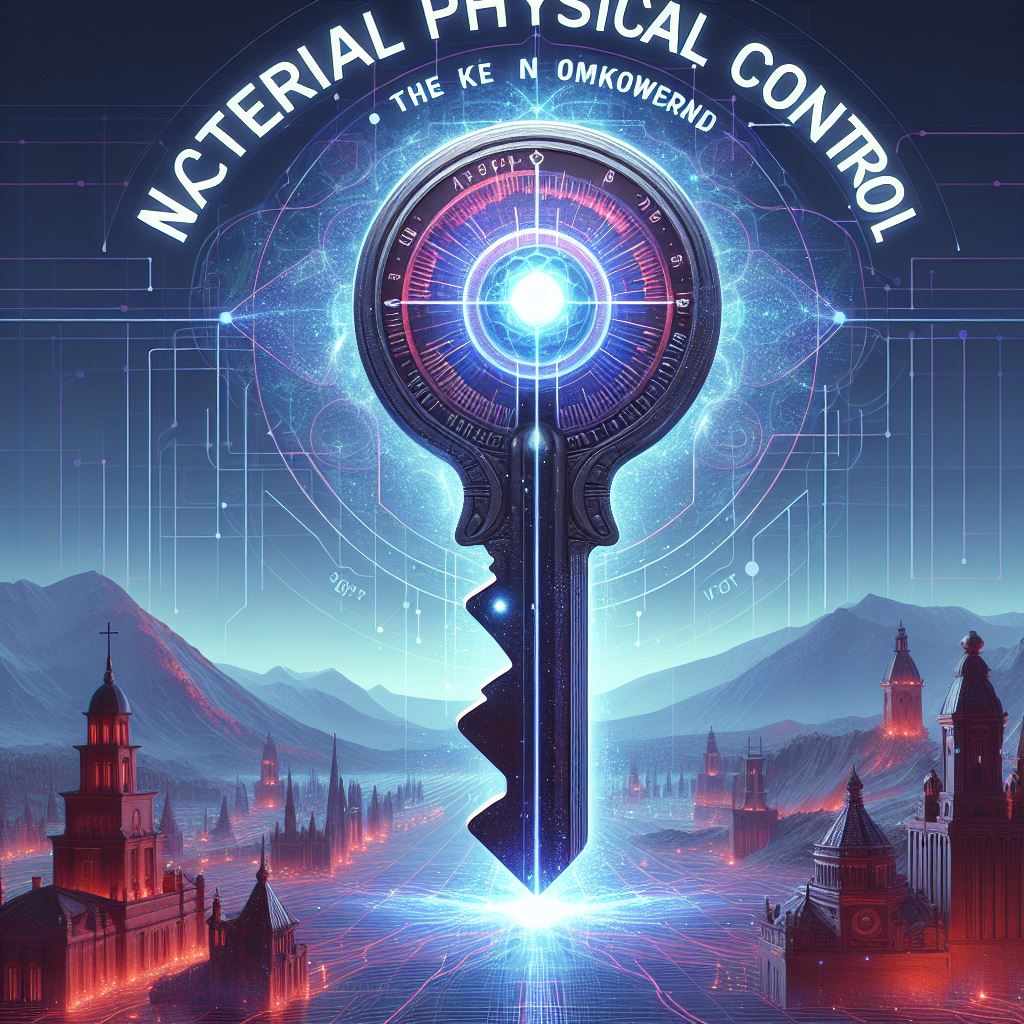Introduction
Understanding the concept of Actual Physical Control (APC) is crucial in legal contexts, especially when it comes to issues related to vehicle control. This article aims to shed light on the definition of APC, its legal implications, and the factors considered in determining it.
Understanding APC
APC extends beyond the simple act of sitting behind the wheel; it encompasses the broader concept of having the capability to operate a vehicle, regardless of whether it is in motion or stationary. Understanding this nuanced definition is crucial for individuals navigating legal landscapes, as the consequences associated with Actual Physical Control can vary significantly.

The intricacies of APC become evident when considering factors beyond mere physical presence in the driver’s seat. Proximity to the ignition and possession of keys are key elements that legal authorities often scrutinize when determining whether an individual had actual physical control of a vehicle. The mere presence near the driver’s seat might not be enough; it’s the potential or perceived ability to set the vehicle in motion that holds significance.
Legal consequences stemming from APC allegations can be diverse, ranging from fines and license suspension to more severe penalties. The subjective nature of APC cases underscores the importance of understanding these nuances to mount a robust defense or navigate potential legal consequences effectively.
For instance, a person found asleep in a parked car with the keys in their possession may be considered to have actual physical control, even if the vehicle is not moving. This scenario highlights the complexity of APC cases, where contextual details play a crucial role in legal interpretations.
As laws regarding APC can vary between jurisdictions, it becomes even more critical for individuals to be aware of the specific regulations applicable in their location. What might be considered as having control over a vehicle in one jurisdiction might not carry the same weight in another, leading to different legal outcomes.
In essence, APC cases involve a careful examination of the circumstances surrounding an individual’s interaction with a vehicle, considering factors that go beyond the traditional understanding of driving. The proximity to keys, the ability to initiate movement, and other contextual details all contribute to the determination of whether someone had actual physical control. Being aware of these intricacies is paramount for individuals seeking to navigate the legal complexities associated with APC allegations.
APC vs. DUI
Distinguishing between Actual Physical Control (APC) and Driving Under the Influence (DUI) is essential, as these terms, while seemingly similar, carry distinct differences in legal contexts. APC places emphasis on the concept of control, irrespective of whether the vehicle is in motion, while DUI specifically pertains to operating a vehicle while under the influence of substances.
APC, in essence, centers around the ability to exert influence and control over a vehicle, even if it remains stationary. This could involve being in the driver’s seat with the keys in possession, ready to initiate movement. The crucial aspect here is the potential to operate the vehicle, making the definition of control more expansive than the act of actively driving.

On the other hand, DUI relates directly to the impairment of an individual’s ability to drive safely due to the influence of alcohol, drugs, or other substances. The key distinction lies in the focus on impairment in DUI cases, as opposed to the broader concept of control emphasized in APC.
Understanding these differences becomes paramount for individuals dealing with legal issues related to vehicle control. While a person may not be actively driving, if they are deemed to have control over the vehicle, they could face APC-related consequences. On the contrary, DUI cases typically involve instances where an individual was operating a vehicle while under the influence, regardless of their physical control over the vehicle when apprehended.
Navigating these distinctions is crucial not only for individuals facing legal consequences but also for legal professionals and law enforcement. Differentiating between APC and DUI ensures that appropriate charges are applied, reflecting the specific circumstances of each case accurately.
As laws surrounding APC and DUI may vary across jurisdictions, individuals should be aware of the specific definitions and legal implications in their area. Understanding these distinctions not only contributes to a more informed public but also plays a vital role in ensuring a fair and just legal process for those involved in cases related to vehicle control and substance influence.
Jurisdiction Variations
The challenge with Actual Physical Control (APC) lies in the considerable variation in its definition across different jurisdictions. What may be deemed as having control over a vehicle in one place might not carry the same weight or meaning in another, leading to a diverse range of legal outcomes and interpretations.
This variability stems from the fact that legal systems and jurisdictions operate independently, and their definitions of APC can be influenced by local laws, court precedents, and cultural considerations. In some regions, the emphasis may be on the potential to operate a vehicle, even if it is stationary, while in others, the focus might be on actual movement or the driver being actively in control at the time of apprehension.
For example, in one jurisdiction, being found asleep in the driver’s seat with the keys nearby might constitute APC, while in another, additional factors may need to be present to establish control. This diversity in definitions can lead to individuals facing significantly different legal outcomes based on where an incident occurs.
Understanding these jurisdictional differences is crucial for individuals, legal professionals, and law enforcement alike. It highlights the importance of being aware of the specific laws governing APC in a particular area and the potential consequences associated with allegations of having control over a vehicle.
The variation in APC definitions also underscores the complexity of the legal landscape surrounding vehicle control issues. It emphasizes the need for a nuanced and context-specific approach when addressing APC cases, recognizing that what may be considered a clear-cut case in one jurisdiction may present challenges or ambiguities in another.
As individuals navigate the potential legal consequences of APC allegations, being informed about the specific definitions and criteria in their jurisdiction becomes essential. Seeking legal advice tailored to the local context ensures a more accurate understanding of the implications and potential defenses in APC cases. Ultimately, the variation in APC definitions across jurisdictions emphasizes the dynamic nature of legal interpretations and reinforces the importance of staying informed within the specific legal framework applicable to each region.
Challenges in Defining APC
The definition of Actual Physical Control (APC) is not always straightforward, creating gray areas and ambiguities within the legal landscape. Real-life scenarios frequently introduce complexities that challenge the clarity of the definition, making it vital for individuals to be acutely aware of potential pitfalls associated with APC.
The lack of clear-cut boundaries in the definition of APC contributes to situations where determining whether an individual had control over a vehicle becomes a nuanced process. Factors such as the specific circumstances of an incident, the state of the individual, and the interpretation of control in a given context can introduce uncertainty into legal assessments.
In these gray areas, legal interpretations may vary, leading to potential challenges for individuals facing APC-related allegations. What might seem like a straightforward case to one party may present a different perspective to another, further emphasizing the need for vigilance and understanding among those navigating these legal waters.
Real-life scenarios often present challenges that may not neatly fit into established legal categories. For instance, a person found in a parked car with the engine off, but with the keys in proximity, may raise questions about whether they had actual physical control. These situations highlight the ambiguity that can surround APC cases and the importance of considering the unique details of each circumstance.

The awareness of potential pitfalls in APC cases is crucial for individuals to make informed decisions and take proactive measures to avoid legal complications. Seeking legal advice when uncertainties arise, understanding local jurisdictional nuances, and staying abreast of legal developments can empower individuals to navigate these gray areas more effectively.
In conclusion, the inherent lack of clarity in the definition of APC contributes to the emergence of gray areas and ambiguities. Real-life scenarios bring forth challenges that demand careful consideration and an understanding of the potential pitfalls associated with APC allegations. By being informed and proactive, individuals can better navigate these complexities and make informed decisions when facing legal scrutiny related to actual physical control.
Legal Precedents
Notable legal cases have played a significant role in shaping the understanding of Actual Physical Control (APC), influencing how this concept is applied in various situations. These legal precedents provide valuable insights into how courts interpret and rule on APC-related matters.
Legal precedents are previous decisions or rulings by courts that establish a framework for interpreting and applying the law in subsequent cases. In the context of APC, specific cases have contributed to establishing guidelines and principles that influence how the concept is understood and applied in different scenarios.
For example, a landmark case may have addressed the question of whether an individual found asleep in a stationary vehicle with the keys in their possession can be considered to have actual physical control. The court’s decision in such a case would set a precedent, offering guidance on how similar situations should be evaluated in the future.
These legal precedents provide a foundation for legal professionals, including judges and attorneys, when handling new APC cases. Courts often refer to past decisions to ensure consistency and fairness in their rulings. The application of precedents helps establish a degree of predictability in legal outcomes and ensures that similar cases are treated similarly.
Furthermore, legal professionals may argue or distinguish their cases based on relevant precedents. Understanding how previous cases have shaped the interpretation of APC allows lawyers to craft persuasive arguments, drawing parallels or highlighting distinctions to support their clients’ positions.
In essence, the influence of notable legal cases on APC extends beyond the specific circumstances of each case. These cases contribute to the broader understanding of what constitutes actual physical control, providing a framework for legal interpretation and decision-making in subsequent matters. As the legal landscape evolves, ongoing analysis of new cases and their impact on APC precedents remains crucial for staying abreast of developments in this area of law.
APC in Non-Moving Vehicles
Contrary to common belief, Actual Physical Control (APC) extends beyond the realm of moving vehicles. Delving into scenarios where the vehicle is stationary unveils unique legal considerations and challenges that individuals may encounter, challenging the conventional notion that control only applies when a vehicle is in motion.
In the legal context, APC is not exclusively tied to the act of actively driving. It encompasses situations where individuals have the potential or capability to operate a vehicle, even if it remains stationary. This broader perspective acknowledges that control over a vehicle can exist irrespective of whether it is in motion, introducing a layer of complexity into how these cases are interpreted and adjudicated.
Exploring scenarios where a vehicle is stationary requires an examination of factors that may contribute to the determination of APC. For instance, an individual found inside a parked car with the engine off, but with the keys in their possession, may still be considered to have actual physical control. This scenario challenges the conventional understanding of control tied solely to movement and highlights the need for a nuanced approach in legal interpretations.
The unique legal considerations in stationary vehicle scenarios often involve assessing the individual’s proximity to the driver’s seat, possession of keys, and the potential to initiate movement. These factors, when combined, contribute to the determination of whether the individual had control over the vehicle, irrespective of its motion status.

Understanding that APC encompasses both moving and stationary situations is crucial for individuals to navigate potential legal challenges effectively. It emphasizes the importance of being mindful of circumstances that may lead to allegations of control, even when the vehicle is not in operation. This awareness is particularly relevant for individuals who may find themselves in situations where they are inside a stationary vehicle and may face legal scrutiny related to APC.
In essence, recognizing the broader scope of APC underscores the need for a comprehensive understanding of control beyond the confines of vehicular movement. It prompts individuals to consider the potential legal implications in various scenarios, fostering a more informed and vigilant approach when it comes to matters of actual physical control.
Technological Advances
Technology plays a pivotal role in the determination of Actual Physical Control (APC), and tools such as breathalyzers have become instrumental for law enforcement in assessing an individual’s state of control over a vehicle. A clear understanding of these technological advances is paramount for individuals navigating APC-related legal issues, as these tools can significantly impact the outcomes of cases.
One of the primary technological tools employed in APC cases is the breathalyzer. This device measures the level of alcohol in an individual’s breath, providing law enforcement with objective data to assess impairment. While traditionally associated with Driving Under the Influence (DUI) cases, breathalyzers also play a crucial role in APC scenarios, especially when determining an individual’s capability to control a vehicle.
Understanding how breathalyzers and similar technologies function is essential for individuals facing APC-related allegations. These tools aim to quantify the presence of substances, such as alcohol, in a person’s system, serving as objective evidence in legal proceedings. The results of these tests can significantly influence the outcome of APC cases, as they provide concrete data regarding an individual’s potential impairment.
Moreover, advancements in technology continue to shape how law enforcement assesses APC. From field sobriety tests to more sophisticated testing methods, staying informed about these technological developments is crucial for individuals navigating the legal landscape. This knowledge empowers individuals to make informed decisions and mount effective defenses based on an understanding of the tools used in assessing control over a vehicle.
It’s important to note that while technology aids law enforcement in determining APC, individuals also have rights regarding the use and accuracy of these tools. Being aware of these rights and consulting with legal professionals who understand the intricacies of technology in APC cases is a critical step in ensuring a fair and just legal process.
In conclusion, the intersection of technology and APC underscores the need for individuals to grasp the role of tools like breathalyzers in legal proceedings. A comprehensive understanding of these technological advances empowers individuals to navigate APC-related legal issues more effectively and advocate for their rights within the evolving landscape of law enforcement technology.
Enforcement and Consequences
Delving into law enforcement procedures related to Actual Physical Control (APC) incidents is crucial in understanding the potential consequences individuals may face. Familiarity with these procedures and the resulting penalties is vital for those confronting APC allegations, as it provides insight into what to expect in the legal process.
Law enforcement typically employs specific protocols when dealing with APC situations. This may involve conducting field sobriety tests, assessing an individual’s proximity to the driver’s seat, and gauging possession of keys. These procedures aim to establish whether an individual had actual physical control over a vehicle, even if it was not in motion.
Once law enforcement determines that an individual had control over the vehicle, whether moving or stationary, the legal consequences come into play. The penalties for APC allegations can vary but may include fines, license suspension, mandatory attendance in alcohol education programs, or even imprisonment, depending on the severity of the case and the jurisdiction’s laws.
Understanding these potential penalties is vital for individuals facing APC allegations, as it enables them to make informed decisions regarding their legal strategy. Seeking legal counsel early in the process can provide valuable insights into the specific consequences that may apply to their situation and help formulate an effective defense.
Moreover, knowledge of law enforcement procedures and potential repercussions serves as a deterrent, encouraging individuals to be mindful of their actions to avoid falling into situations that could lead to APC allegations. Awareness of the legal landscape surrounding APC incidents empowers individuals to make responsible choices and, if necessary, to navigate the legal process more effectively.
In conclusion, being acquainted with law enforcement procedures and the associated legal consequences is crucial for individuals facing APC allegations. This knowledge not only provides a roadmap for what to expect in the legal process but also enables individuals to make informed decisions and take proactive measures to address the challenges they may encounter in the aftermath of an APC incident.
Public Awareness
Raising public awareness about Actual Physical Control (APC) is essential to prevent legal issues related to vehicle control. Providing tips on avoiding situations that may lead to APC allegations is crucial, helping individuals stay informed and make responsible choices when it comes to their interactions with vehicles.

Public awareness serves as a preventive measure, ensuring that individuals understand the nuances of APC and are mindful of the potential legal consequences associated with control over a vehicle, even if it’s not in motion. By disseminating information about the factors that law enforcement considers in APC cases, communities can empower individuals to make informed decisions and navigate situations responsibly.
Tips on avoiding APC-related legal issues may include:
- Designate a Sober Driver:
Encourage the practice of having a designated driver who remains sober and in control of the vehicle, especially during social gatherings where alcohol may be involved. - Use Alternative Transportation:
Opt for alternative transportation options such as taxis, rideshare services, or public transit when alcohol consumption is part of the plan. - Secure Keys Wisely:
Be mindful of where and how keys are stored. Avoid placing keys within easy reach if one intends to remain stationary inside a vehicle. - Understand Local Laws:
Stay informed about local APC laws and regulations to ensure compliance and avoid unintentional violations. - Seek Safe Spaces:
If feeling impaired, seek a safe and designated area to rest rather than remaining in the driver’s seat of a vehicle. - Educate Others:
Share information about APC and responsible vehicle control practices with friends, family, and community members to collectively foster a culture of awareness. - Know Personal Limits:
Be aware of personal limits regarding alcohol consumption and make conscious decisions to avoid situations where control over a vehicle may become an issue.
By actively promoting these tips within communities, public awareness campaigns contribute to a culture of responsibility and informed decision-making. This proactive approach can significantly reduce the likelihood of individuals finding themselves in situations that may lead to APC allegations, ultimately preventing legal complications and ensuring safer interactions with vehicles.
Common Misconceptions
Addressing common misconceptions about Actual Physical Control (APC) is pivotal in fostering a clear understanding of this concept within the community. Clarifying these misunderstandings not only contributes to dispelling myths but also plays a crucial role in creating better-informed and aware communities.
One common misconception is that APC is solely applicable to moving vehicles. In reality, APC encompasses situations where an individual has the potential to control a vehicle, even if it is stationary. By addressing this misconception, the community gains a more accurate understanding of the scope of APC, reducing the likelihood of individuals underestimating the legal implications of being in control of a non-moving vehicle.
Another prevalent misunderstanding revolves around the belief that being inside a parked car, even with the engine off, exempts individuals from potential APC consequences. Clarifying that factors such as proximity to the driver’s seat and possession of keys can still contribute to APC allegations helps individuals make more informed decisions about their actions and potential legal ramifications.
Educating the community about these misconceptions is essential for promoting responsible behavior and preventing unnecessary legal complications. It empowers individuals to make choices that align with a more accurate understanding of APC, reducing the likelihood of inadvertent violations and ensuring compliance with legal standards.
Furthermore, dispelling misconceptions contributes to a more cooperative relationship between the public and law enforcement. A well-informed community is better equipped to engage in constructive dialogue and advocate for legal clarity, fostering a sense of trust and cooperation between individuals and the legal system.
In conclusion, addressing common misconceptions about APC is a key component in promoting a clear and accurate understanding of the concept. By clarifying these misunderstandings, communities can become better informed, reducing the likelihood of legal issues related to APC and contributing to a more responsible and engaged society.
Implications on Insurance
APC incidents can have significant repercussions on insurance premiums, and it is crucial for individuals to understand how insurance companies perceive and handle matters related to Actual Physical Control. This understanding is essential for those navigating the aftermath of such incidents, as it directly impacts their insurance coverage and costs.
When an individual is involved in an APC incident, even if it doesn’t result in charges or convictions, insurance companies may still view the situation as a risk factor. The perception of risk in these cases can lead to increased insurance premiums. Insurance companies often associate APC incidents with a higher likelihood of future incidents, impacting the individual’s risk profile and, consequently, their premium rates.
Being aware of how insurance companies evaluate APC-related matters allows individuals to make informed decisions about their insurance coverage. It may also prompt individuals to explore different insurance options or seek policy adjustments to mitigate potential premium increases.
Moreover, the handling of APC incidents by insurance companies can vary, and some may adopt a more lenient approach than others. Understanding the specific policies and procedures of one’s insurance provider is crucial for individuals to anticipate the potential impact on their coverage and financial obligations.
In cases where an individual faces APC allegations, timely communication with their insurance company becomes essential. Reporting the incident promptly and providing accurate information can help manage expectations and facilitate a smoother process in dealing with potential changes to the insurance policy.
In conclusion, understanding how insurance companies assess and handle APC incidents is vital for individuals navigating the aftermath of such situations. Awareness of the potential impact on insurance premiums empowers individuals to make informed decisions about their coverage, enabling them to take proactive measures to manage the financial consequences of APC-related matters.
Community and Advocacy
Support groups and organizations play a pivotal role in advocating for clearer Actual Physical Control (APC) laws. Their efforts, combined with community initiatives aimed at raising awareness, contribute to a more informed public and have the potential to influence changes in legislation surrounding APC.
These support groups and organizations act as catalysts for positive change by actively engaging with lawmakers, legal professionals, and the public. Their advocacy efforts often focus on highlighting the nuances and challenges associated with APC laws, urging for clearer definitions and more precise regulations. By fostering open dialogue and promoting a better understanding of the complexities involved, these groups strive to shape legislative improvements that reflect the needs and concerns of the community.
Community initiatives, such as awareness campaigns and educational programs, further amplify the impact of these advocacy efforts. By disseminating information about APC laws, their implications, and potential consequences, these initiatives empower the public to make informed choices and navigate the legal landscape responsibly. Informed communities are more likely to engage in discussions around legislative changes and advocate for adjustments that align with contemporary perspectives and societal needs.
Moreover, the collective voice of support groups and informed communities can influence policymakers to reconsider or refine existing APC laws. Lawmakers, responsive to the concerns of their constituents, may be prompted to review and update legislation to better reflect the evolving understanding of APC and address any ambiguities or challenges identified by advocacy groups.
The synergy between support groups, community initiatives, and legislative change underscores the importance of a collaborative approach to legal reform. As these entities work together, they create a platform for constructive dialogue, encourage public engagement, and contribute to the development of clearer and more effective APC laws.
In conclusion, support groups, organizations, and community initiatives form a dynamic force in advocating for clearer APC laws. By fostering awareness, engaging with policymakers, and encouraging public participation, these efforts collectively contribute to a more informed and empowered society while influencing positive changes in legislation related to Actual Physical Control.
Future Trends
The definition and regulations surrounding Actual Physical Control (APC) may undergo evolution over time. Remaining vigilant and attentive to potential changes and trends in this area is essential for individuals, allowing them to stay informed and adapt to the shifting legal landscapes surrounding APC.
Legal frameworks are dynamic, and as societal perspectives, technologies, and cultural norms evolve, so too may the definitions and regulations pertaining to APC. Staying abreast of potential changes ensures that individuals are well-informed about any alterations in the criteria or legal interpretations that may affect APC cases.
This awareness is especially crucial for those who may encounter APC-related situations in the future. Whether through legal professionals, community initiatives, or ongoing educational efforts, keeping an eye on emerging trends in APC laws enables individuals to anticipate potential shifts in the legal landscape and adjust their behavior or decision-making accordingly.
Technological advancements, societal attitudes, and legislative reforms are among the factors that can contribute to changes in APC regulations. For instance, developments in testing methods, such as advancements in breathalyzer technology, might influence how law enforcement determines APC. Staying informed about these technological trends ensures that individuals are cognizant of the tools and methods used in assessing control over a vehicle.
Moreover, understanding potential changes in APC regulations allows individuals to proactively engage with legal systems, participate in community discussions, and advocate for adjustments that align with contemporary values and understanding of vehicle control. This active involvement in the legal discourse can contribute to shaping fair and effective regulations.
In conclusion, the evolution of the definition and regulations surrounding APC is an ongoing process. Individuals who stay vigilant and informed about potential changes and trends in this area are better equipped to navigate shifting legal landscapes and adapt to any modifications that may arise in the understanding and application of Actual Physical Control.
In conclusion, understanding Actual Physical Control is not only important for legal reasons but also for personal responsibility. The complexities and variations in APC definitions demand attention from both individuals and communities. By staying informed and aware, we can navigate the legal landscape surrounding APC more effectively.
FAQs
- Is APC the same as DUI?
- No, APC focuses on control rather than actual driving, while DUI involves operating a vehicle under the influence of substances.
- How do technological advances impact APC cases?
- Technologies like breathalyzers play a role in determining APC, providing evidence in legal cases.
- What are the consequences of APC allegations?
- Penalties for APC can vary but may include fines, license suspension, or other legal consequences.
- Are there community initiatives for APC awareness?
- Yes, support groups and organizations work towards raising awareness and advocating for clearer APC laws.
- Can APC incidents affect insurance premiums?
- Yes, APC incidents may impact insurance premiums, depending on the policies and practices of insurance companies.


